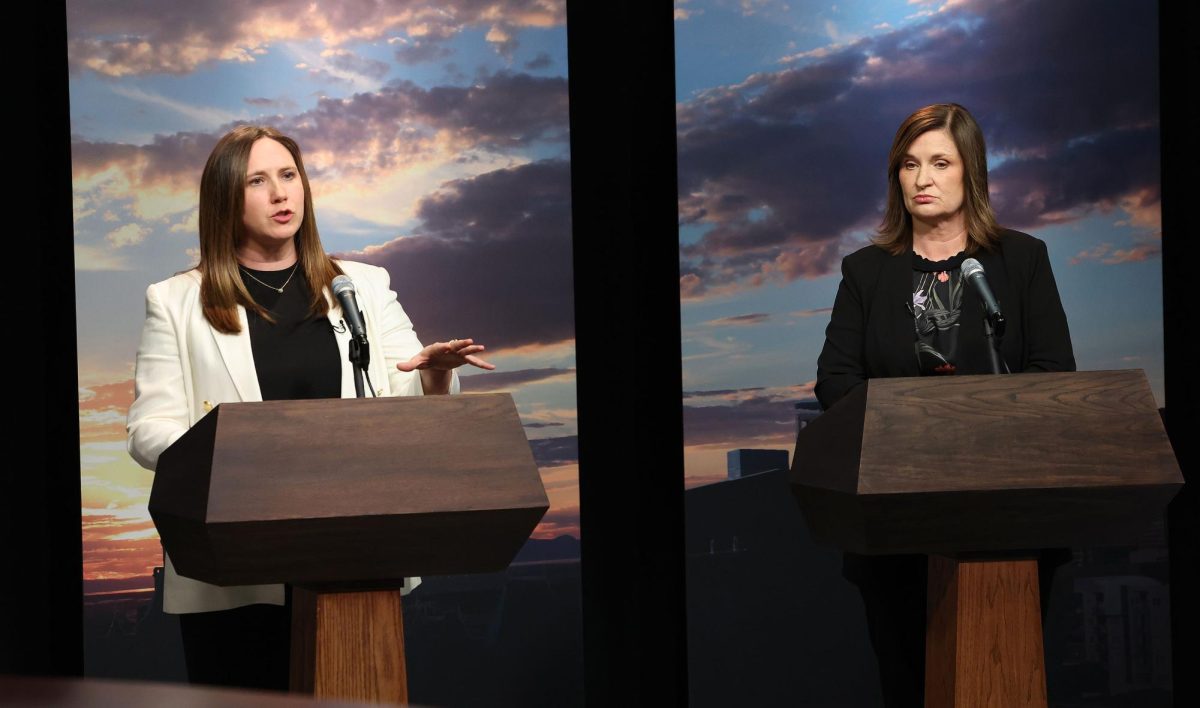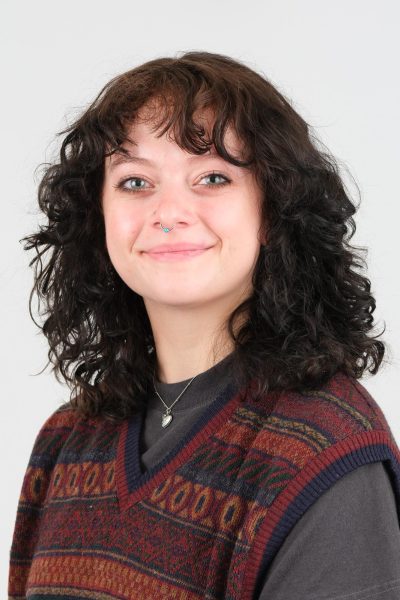From recreation centers to libraries to both Cottonwood Canyons, the Salt Lake County government manages a variety of services and amenities across 30 cities and towns in Utah.
The Salt Lake County mayor is at the head of it all. They are responsible for drafting county budgets, enforcing policies and creating new ones. This election season, the position is up for grabs.
Jenny Wilson, a Democrat, is Salt Lake County’s current mayor. She’s running for another term against Erin Rider, a Republican lawyer.
Here’s what to know about their stance on the county’s key issues.
Affordable Housing and Homelessness
Wilson has continuously advocated for more “deeply affordable housing” in the county. During the county mayor debate earlier this month, Wilson specifically pointed to a five-year plan her office launched in July aimed at ensuring “homelessness is brief, rare and non-recurring.”
“Those units will support our street population and people in deep need who have had mental health crisis trauma in their lives,” Wilson said at the debate, “And that deeply affordable [housing], as we’re proposing it, will have wraparound services to assure a path to success.”
According to the plan, these affordable housing units will range from units in group homes to permanent supportive housing with services for mental health or those experiencing homelessness.
Salt Lake County’s website says this plan will be funded by “Medicaid, opioid settlement funds, grants, state and federal resources and philanthropic contributions.”
Erin Rider’s campaign website lists housing and homelessness as important issues for her. She told the Salt Lake Tribune that part of her plan to address homelessness includes creating policies focused on reintegration.
She pointed to ensuring access to government IDs, a physical address for job or apartment applications and mental health and recovery services as ways to foster reintegration.
“If you don’t have a government-issued ID or a physical address, how do you get a job?” Rider said during the debate.
During the debate, Rider also said that if elected, she would create a 10-year plan to manage the county’s growth and development.
“[There are] a couple things in mind with this that I’m looking at,” Rider said. “One of them is, how do you put home buyers on par with some of the big corporate buyers that are coming in and buying these houses for all cash offers that our residents just can’t compete with?”
The other, Rider said, is building a pipeline to home ownership.
“We need smaller, single-family homes, larger homes, et cetera so that there’s an actual pipeline to ownership that our residents can use,” Rider said. “Right now, we’re kind of apartments and homes, and that’s really it.”
Rider told KUER that she would also work to create a path for residents to use rental assistance programs and help them build job skills, which she hopes will help them earn higher wages.
County Spending
Rider has been critical of the county’s budget throughout her campaign. For 2025, the county has a budget of about $2 billion.
“The county’s budget is roughly $2 billion annually, and yet one of the main complaints I hear is that the county never has money to maintain or invest in the projects they are responsible for,” Rider told KUER.
Rider also repeatedly criticized the number of deferred maintenance projects the county faces during the mayor debate.
“One of the things that I want to do is to make sure that every single dollar we’re using is going to a core purpose that the county is responsible for,” Rider said. “How do you go through $2 billion a year and not have money to do something as basic as maintenance on your core assets?”
However, after Rider’s statement, Wilson clarified that most of the county’s budget must go to operational costs and programs, so there’s not much “wiggle room.”
During the debate, Wilson also touted that she has proposed a balanced budget every year she’s been in office, meaning that the county wouldn’t need to find new or increase current revenue streams to meet the budget. She also said her budgets have all had bipartisan support.
“As I work with the leaders on my team, we’re looking day in and day out to make sure that we are delivering great, important programs,” Wilson said. She specifically pointed to the My County Rec Pass program, which gives kids up to 18 years old free access to the county’s participating rec centers.
The county offers various other programs, including parks and recreation, arts and culture and assistance.
Environmental Issues
Both candidates have also expressed their commitment to preserving Great Salt Lake.
“If you look at the challenge around water and water conservation, we have a lot working against us,” Wilson said in a media scrum after the county mayor debate. “We have a growing population. We have farmers who don’t want to change practices, and then we also have climate change impacting us on a regular basis.”
Wilson pointed to specific steps the county has taken to reduce water consumption, like replacing the grass in the county’s soccer fields with turf. She said the county has also worked to educate cities on water conservation and gave them grants to create water-wise infrastructure. However, Wilson did say during the scrum that she believes the state should take the lead in addressing the shrinking Great Salt Lake.
“I think it’s incumbent upon the state to make sure that they remain in the driver’s seat,” Wilson said. “I’m hoping a leader emerges on the state side.”
Meanwhile, Rider said during her media scrum that she wants to focus on monitoring development and encouraging xeriscaping with native plants.
“To the development point, we have some interesting things happening where you now have developers buying single-family lots, but they’re putting mini apartment buildings on there, and it’s drawing [more] water than what that lot was originally intended for,” Rider said.
Both candidates have also said they oppose the construction of a gondola in Little Cottonwood Canyon, as UDOT has proposed. They also oppose a proposal to expand mining in Parley’s Canyon.




Dominic • Oct 31, 2024 at 6:45 pm
Really should’ve worked to get this out before a number of people have already filled out their mail-in ballots